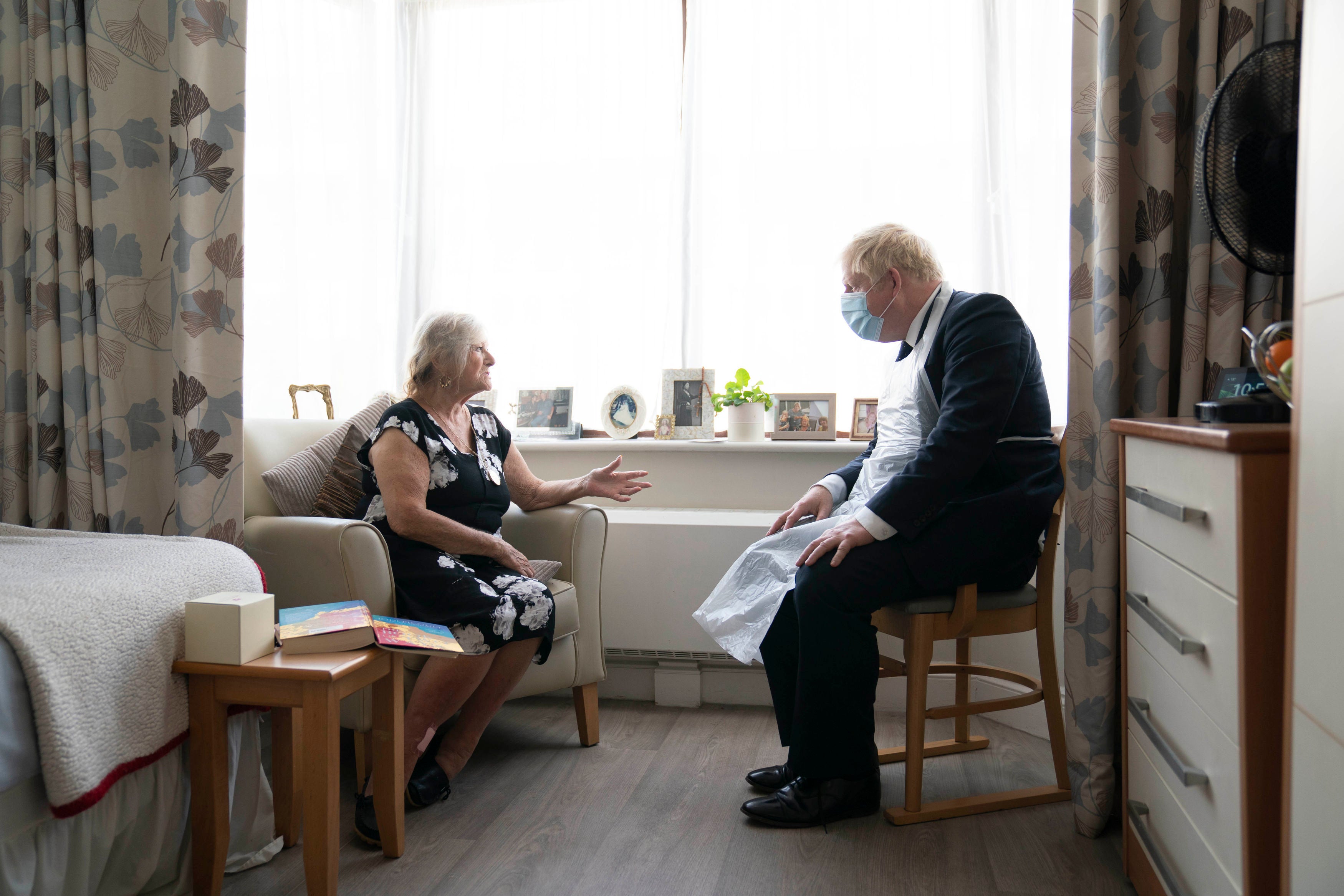People could still lose homes under Boris Johnson’s social care plan, minister admits
Government slipped out changes to proposals to save money

People could still lose their homes under Boris Johnson's revised social care plans, a government minister has admitted.
Speaking on Monday morning Paul Scully said he hoped nobody would have to sell their house but that the number would certainly be "fewer" than now.
Boris Johnson had previously pledged that the change to the social care system would mean nobody would have to sell their houses to pay for care.
But last week while MPs were focused on the Westminster sleaze scandal the government slipped out changes to its proposals.
Under the revised policy poorer pensioners will not, after all, be able to count means-tested payments by the state for their care towards a total cap of £86,000.
The change means people on higher incomes will be more likely than people on lower incomes to benefit from the cap.
It also means that people in more expensive houses would have almost all their assets protected while those in lower value homes would lose almost everything.
"There will be fewer people selling their houses and hopefully none," business minister Mr Scully told Sky News when asked about the change.
Pushed on whether anyone would have to sell their homes to pay for care Mr Scully replied: "I can't tell you what individuals are going to do.
"What I'm saying is the social care solution is all about getting a cap above which you do not need to pay - that gives people certainty."
Speaking ahead of an MPs' debate and vote on the proposals, Mr Scully added: "It will depend on different circumstances.
"If you hit the cap you will not have to pay any more money for your personal care - I think that is a fair, balanced approach for taxpayers and people who are having to pay for what is a really expensive, at the moment, form of care through social care."
The PM’s official spokesperson would not rule out the possibility of people being forced to sell their homes, when speaking to journalists later, saying only: “I can’t predict individual decisions.”
The spokesperson denied that the decision not to count means-tested benefits as contributions towards the cap amounted to a change in government policy, insisting that it had always been part of Mr Johnson’s plan and that ministers had simply delayed setting out the details until last week.
He said that the intention was to “get the balance right between protecting the minority who face catastrophic care costs and the cost to the taxpayer overall”.
The prime minister believes that people have the right to pass on their homes to their children after their death, he said.
Some Conservative MPs have threatened to rebel against the changes, which will hit many seats won by the party for the first time in the 2019 election - the so called "red wall".
Boris Johnson has said the current social care system is “very, very unfair” and that the new system is “generous”.
Join our commenting forum
Join thought-provoking conversations, follow other Independent readers and see their replies
Comments
Bookmark popover
Removed from bookmarks